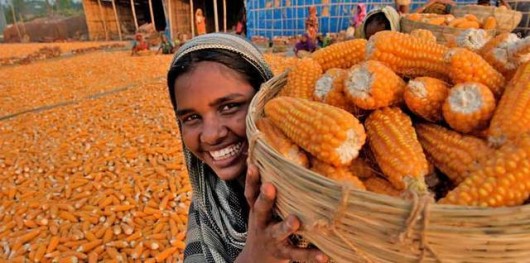Bangladesh Nonprofit Wins World Food Prize

In early November of 1970 a category-3 tropical cyclone made landfall over what was then called Eastern Pakistan. It was the single deadliest tropical storm in human history with a death toll reaching over 500,000. The next year, in 1971, the region would fight a war to form the independent nation of Bangladesh.
Due to so much devastation in so little time, Bangladesh would go on to become the second poorest country on the planet. That’s where one man, Fazle Hasan Abed, felt something had to be done.
Abed formed BRAC, or the Bangladesh Rural Advancement Committee, in the early 1970s as a temporary organization dedicated to providing aid to individuals and their families who were affected by the catastrophes. But after providing immediate relief Abed realized the need for round the clock, global aid.
Since its creation, the Bangladesh nonprofit has evolved into one of the largest organizations fighting to end global poverty and hunger. As a result, Abed was announced as the recipient of the 2015 World Food Prize on September 2 in Des Moines, Iowa.
Estimates on the scope of BRAC’s now 40-year impact show that the organization has helped nearly 150 million people across Africa and Asia. The organization has plans to expand its reach into 10 additional countries.
The World Food Prize was created in 1986 to recognize individuals who contribute to the production, innovation and availability of global food supplies. The prize is a donation of $250,000. The award ceremony will take place in October.
Initially, Abed and BRAC worked to combat the incredibly high childhood mortality rates in Bangladesh before seeing the need to combat poverty on an even grander scale. In 2010, Abed was knighted by Queen Elizabeth II for his efforts to empower women through STEAM and agricultural education.
Most recently, BRAC has begun a self-sufficiency and financial training program in 9 different countries. The program gives participants a weekly stipend to discourage begging and menial labor.
A bank account is set up in their name so as to teach financial and practical skills. Participants may also receive a grant to buy a computer, a cow, or a chicken coop to begin their own business.
On the program Abed said, “In many countries, poor people are not seen as a solution to the problem but the problem. Poor people can be organized and become the solution to the poverty themselves…All we need to do is provide them opportunities and conditions and give them the tools.”
Sir Abed, who recently celebrated his 79th birthday, now has yet another trophy to add to his collection that shows his undying desire to end global poverty, suffering and hunger.
– Joe Kitaj
Sources: Fortune, Huffington Post, BRAC, Word Food Prize
Photo: Globalhand
